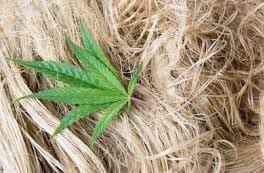Hemp is on track to becoming a popular cotton alternative for the denim industry.
In a panel hosted by Mohsin Sajid, creative director of denim label and consultancy Endrime, hemp was touted as a fiber to watch for a number of reasons, beginning with the positive effect it can have on the environment.
“Hemp is very justifiably being presented as a great miracle fiber for its potential as a regenerative crop,” said Janelle Hanna, White Weft, design consultant. “It has the ability to solve a lot of the problems that we have with soil.”
Hemp can break up compacted soil and remove contamination and heavy metals from the ground. Panelist Zennure Danisman, marketing and washing manager at Orta Anadolu, added that the crop significantly reduced soil toxicity after being grown around the abandoned Chernobyl nuclear power plant in Ukraine.
When grown, industrial hemp also absorbs more CO2 than any forest or commercial crop—which means growing hemp could help offset carbon emissions in other areas of the denim supply chain. Compared to cotton, the crop also requires less water and time to grow, and can be pre-treated and finished to mimic the same soft hand feel.

Fabric aside, hemp serves a multitude of purposes in denim, according to Laura Dixon, owner of the design consultancy Three By One Europe.
“If you think about the components of a pair of jeans, you can use the fibre, not only in the fabric, but you could also make the buttons out of the bioplastic, and you could make the labelling and hangtags out paper,” she said. “There are quite a lot of parts the denim industry could use hemp for.”
However, there is still hesitation throughout the industry, largely due to laws which govern the crop because of its low concentration of THC—which gives marijuana its psychoactive properties. Hemp may not be a practical crop for small farmers, as they would need drug licenses and be subject to criminal checks. Dixon noted that the agricultural policy varies throughout the world, meaning countries with higher allowances would have a competitive advantage.
“From a farmer’s point of view, there needs to be an allowance for a higher level of THC for them to be able to stay within the law,” she said. “So, there are quite a lot of challenges going forward with hemp, but hopefully in the future, legislation will open up a little bit more, and it will become a more viable crop.”
Dixon added that, if legislation passes and its popularity grows, there could be an opportunity to shorten the denim supply chain.
“If we can start growing hemp in the same location that we can spin the yarn, where we produce the fabric and make the final garments, what more perfect supply chain do you have?” she said.

